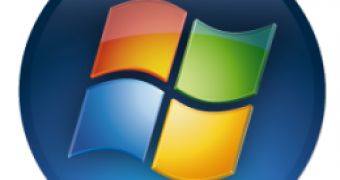Without a doubt, Windows Vista, even after Service Pack 1, is at the center of a consistent volume of "Pass" decisions, especially in the corporate environment. Judging by the slow pace of the operating system, which barely crawled over 160 million sold licenses worldwide at the end of June 2008, customers are not exactly crowding to buy the operating system. Considering XP's market share still at over 70% and the high profile negative answers to Vista SP1 adoption, such as the decision of Intel, which indicated seeing no value in the upgrade to the latest Windows client (complete with the first service pack), it is clear that saying "yes" to Windows Vista is the exception and not the rule.
At least, this is the generalized perception that Microsoft is trying hard to fight ahead of the first widespread Beta development milestones of the upcoming Windows 7, when it is too late to push anything down the throat of Windows users. And with Windows 7 planned for the end of 2009, the time for Windows Vista to woo consumers is running out, and fast, SP1 or no SP1. But even if they seem to be exceptions, home users and companies are indeed upgrading to Vista SP1. Microsoft even offered illustrative examples in this context, the cases of Eastman Chemical Company and PPG Industries.
"The Eastman story focuses on the timing of their refresh cycle and their evaluation of whether to stay on Windows XP or move to Vista. The Vista decision came from a number of factors, not the least of which is getting better control and limiting administrator privileges to their corporate machines. As part of their rollout plan, they did a small pilot to their North American IT group of 350 users in October, 2007, and then to the broader global IT group soon after. After a successful pilot, they began deploying in February, 2008 and expect to be rolled out to most/all of its 10,000 users by August, 2008," revealed a member of the Microsoft Chemical Team.
Leaving Windows XP SP3 to make the jump to Windows Vista SP1 might seem an incomprehensible move to Intel, which in a case of "et tu Brute?" managed to abandon long time partner Microsoft and to generate a stir of bad publicity in the process, but other companies are less hesitant. The bottom line is that an operating system migration at corporate level is dramatically different than a plain vanilla upgrade process.
End users are able to deal with a single, or several upgrades well under a day. As far as enterprises are concerned, the migration process can take as long as a year. This means that businesses steering away from Vista SP1 today in order to jump straight to Windows 7 might not be able to do so until late in 2010, or even 2011. Best case scenario: they would still be running Windows XP, a nine year old operating system, but there are also IT infrastructures relying on Windows 2000, which is unacceptable.
"While Eastman is upgrading from Windows XP, PPG is upgrading 25,000 desktops from Windows 2000 Professional. Motivating their upgrade was the decision to deploy Office 2007 to all of its users and to support the latest peripherals their global workforce needs to be successful. They launched a Desktop of the Future initiative, which included refreshing the access to their standard collaboration tools for Exchange 2007, Office SharePoint Server 2007, LiveMeeting 2007, and Office Communications Server 2007. They are 5,000+ seats deployed as of the middle of this year and plan to complete the rollout by mid-2010," the Microsoft Chemical Team member added.

 14 DAY TRIAL //
14 DAY TRIAL //